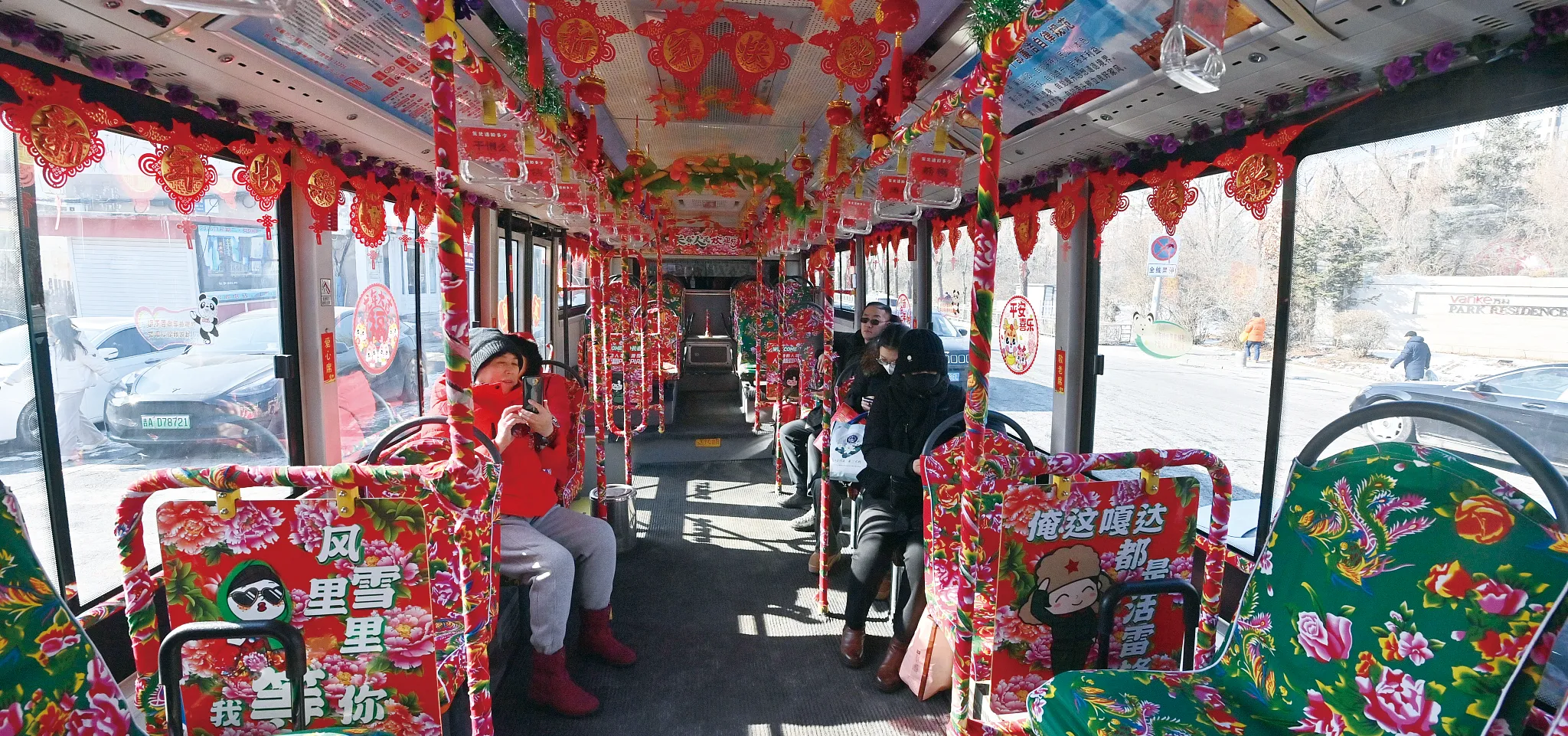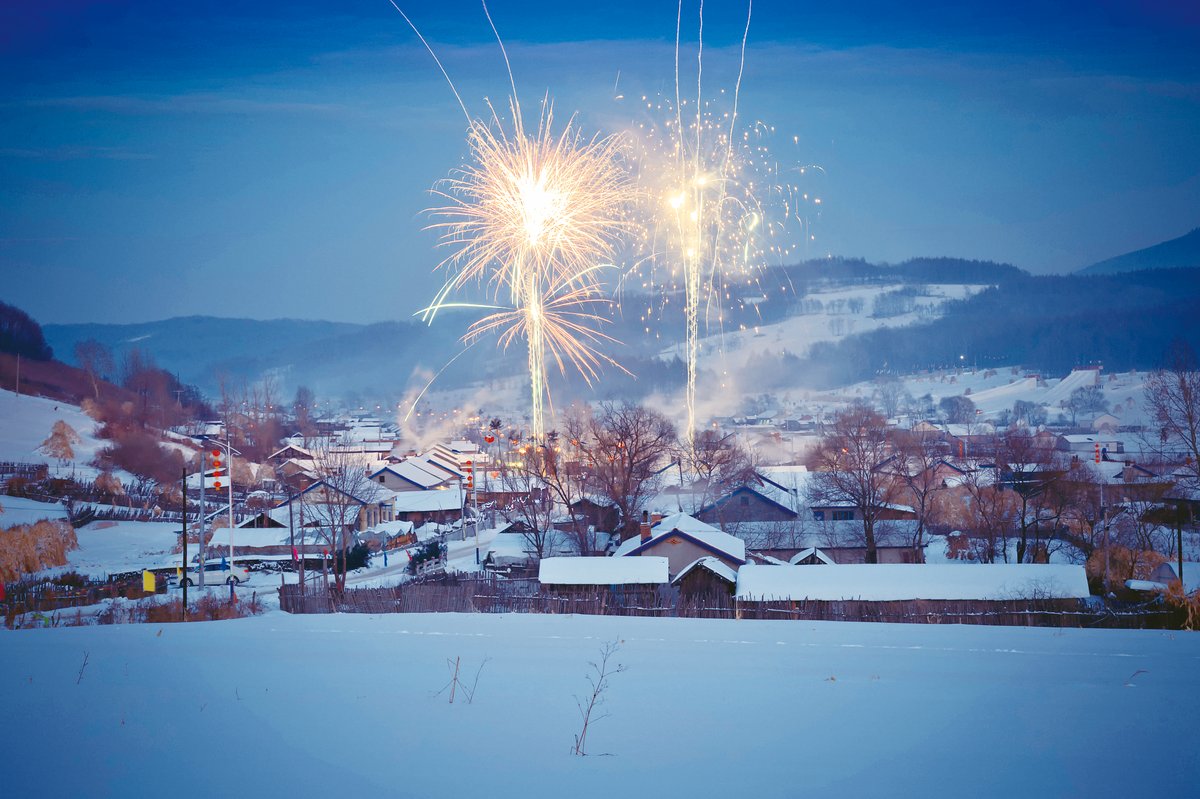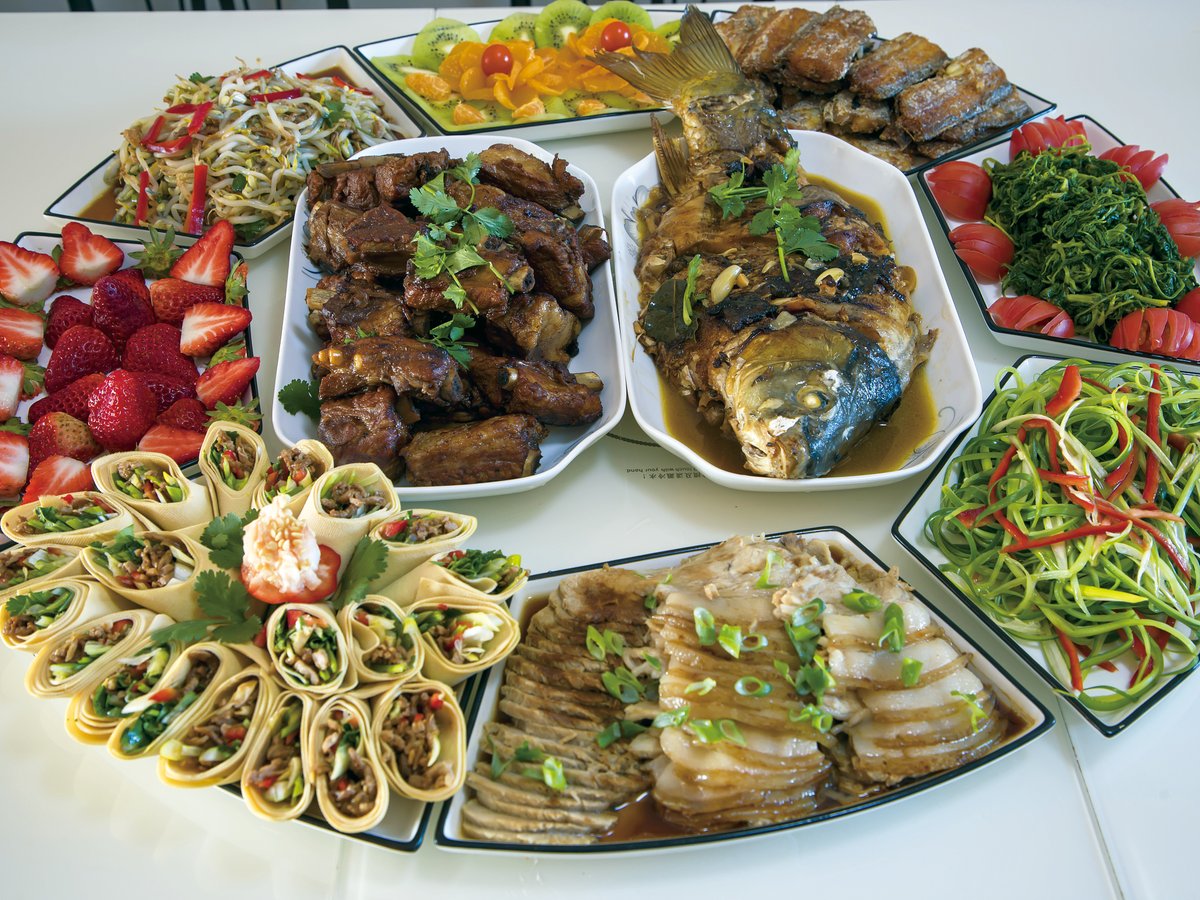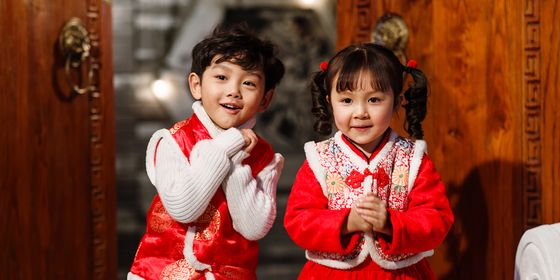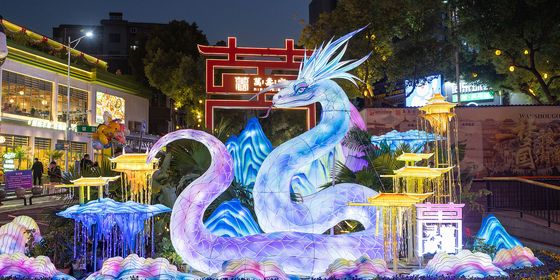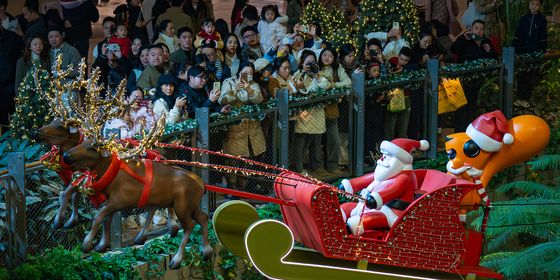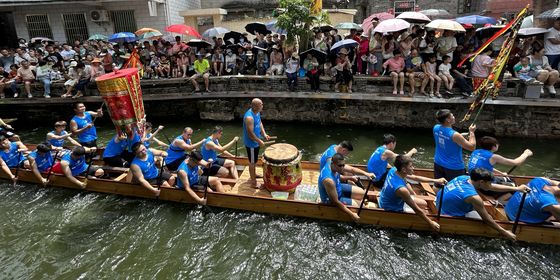Folk customs and culture of Northeast China during the Lunar New Year
Frank and feisty, yet warm and generous, is the impression Dongbei folks leave on visitors. Some say it’s the adventurous spirit and camaraderie they developed as migrants over hundreds of years of striving to make a living in the frosty northeast of China. Others say that it’s the heritage of the local nomads. Whatever circumstances went into the development of the unique character of Dongbei’s people, you can rest assured that if you are ever lost, or need any assistance on your trip through Jilin, the hospitable locals will not hesitate to extend a helping hand. Don’t be surprised if people want to chat with you like old friends, calling you “big bro” or “big sis”: Breaking the ice is never hard with Dongbei folks.
As well as boasting unique people, Jilin also features some special folk customs. And there’s no better time to experience them than during the Lunar New Year.
As red lanterns and spring couplets festoon the snowy fields in Jilin, the locals are busy preparing for the New Year celebration. The process begins by getting rid of the dust that may have accumulated over the past year with a deep spring cleaning and hanging red paper-cut art to decorate the home. The cleaning also extends beyond the house to the people themselves. Urban bathhouses in Dongbei have become a social necessity where family and friends gather over the holiday season, and Jilin is no exception: A large Jilin bathhouse is like a small entertainment center. Apart from bathing, people can literally spend an entire day there, enjoying massages and saunas, watching films, snacking from the buffet, playing cards and mahjong (or a video game), or simply chatting and relaxing, all for a very reasonable price.
For the actual bathing, a proper rub is at the core of a thorough cleaning. This service provided by the bathhouse staff is not complete without various skin-care treatments from vinegar, milk, wine, and honey.
In the countryside, villagers butcher a pig at the end of the lunar year, a major event in winter. Families and neighbors are invited for a holiday feast. The fresh pork and newly-made blood sausage are stewed with pickled Chinese cabbage and served with dishes made with various other parts of the swine. Households also make dumplings and sticky bean-paste buns as staples on the festive table. Some may also hide a coin inside the dumplings, a lucky draw of good fortune in the coming year for whoever may come across it. After a big feast, it’s time for dessert. In Dongbei, pears or persimmons are frozen outdoors in cold temperatures to preserve the fruit. They are then enjoyed as a sweet, juicy, refreshing frozen snack after dinner.
While resting from a year of hard work in the fields, and hiding away from the freezing cold weather, villagers enjoy chatting with visiting neighbors—laoke (唠嗑) in Dongbei dialect—while sitting on the hot kang, a heated bed which is essential in northern rural homes.
Known for exaggeration and humor, the Dongbei dialect can make mundane daily conversation instantly amusing; perhaps this is why many Chinese comedians are from the Northeast. While families gather to watch China Central Television’s New Year Gala, one of the biggest televised events on earth with over 1 billion viewers, chances are you will be entertained with at least one comedy sketch featuring the lovable Dongbei dialect.
Though winter can be harsh, it doesn’t mean people have to stay inside all the time. There are plenty of colorful traditional performances that keep the festive mood high. Yangge (秧歌), for instance, is a folk dance that originated from ancient farmer songs to relieve the tedium of hard labor and celebrate the harvest. Featuring colorful clothing and props like fans, ribbons, or handkerchiefs, yangge’s basic moves are simple and rhythmic, making the dance a crowd-pleaser that gets everyone out of their seat.
Another performance not to be missed is errenzhuan (二人转), a two-person singing and dancing performance. It is a type of traditional opera from the region and a national intangible cultural heritage item. The program “A New Year Visit (《小拜年》)” is perfect for the holiday, telling the cheerful story of a young couple visiting the wife’s parents on Lunar New Year’s Day. Known for its witty, relatable narratives, the traditional opera is hugely popular, as evidenced by the local proverb, “It’s better to skip a meal than miss a show.”
A New Year in Jilin is packed with fireworks and good food. Most importantly, everyone will always be welcome in the land of hospitality.
Excerpt taken from Jilin: Land of Mystery, TWOC’s guide to China’s northeastern province. Available now in our store!





